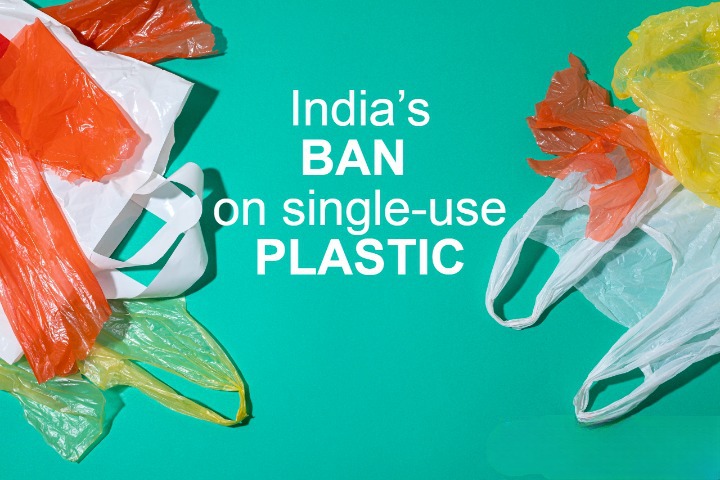One small step for us becomes a giant leap for the planet
I remember a time when there were more glass bottles than plastic when most homes had knit bags or cloth bags that they took for shopping and reused, where glass bottles were bought from shops for a deposit and returned after use, and provision stores used old newspapers to wrap rice and pulses. When we went on picnics, my mom and aunts would always bring steel plates with them, wash and reuse them. Pre-90’s was a time when India only naturally knew to reuse, recycle and be sustainable.
In the 90s, with liberalization and the advent of economic growth and consumerism, India started seeing a rise and a huge demand for single-use plastic products along with the advent of use and throw. Imagine this, in a highly populous country like India, a true recipe for disaster.
For decades, plastic waste has become a significant source of pollution in India and there was no getting rid of it! India uses about 14 million tonnes of plastic annually, but we do not have a system to manage this plastic waste and this is an issue leading to animal deaths, and polluted cities, streets, and waterways.
The Plastic Ban
July 1, 2022 – A date to be marked as this was when India banned the use of ‘single-use plastic’ (SUP) – identified to have low utility but high littering potential. This is in addition to the earlier ban on lightweight plastic bags (of thickness less than 75 microns) and non-woven plastic (less than 60 gm per sq m) that came into effect on September 1, 2021.
What does this mean for us?
Cutlery items including plates, cups, forks, spoons, knives, trays and earbuds, Sheet boxes, balloon sticks, cigarette packs, and more have been banned.
Though companies and plastic manufacturers have complained about the ban, lobbying for items to be removed and saying that they were not given adequate time to prepare, to be fair, last August, The Ministry for Environment, Forest and Climate Change issued the notification announcing this ban on single-use plastic effective July 2022. The government has even rejected demands from large global and domestic beverage firms like PepsiCo, Coca-Cola Co, Parle Agro, Dabur and Amul, and All India Plastic Manufacturers Association (AIPMA), who had all lobbied for straws to be exempted from the ban. These companies have argued that there are issues like the unavailability of alternatives, economic infeasibility, and demand-supply gap, which will increase the cost of their product packaging.
The Effects of the Ban
In order to make a difference and try and combat the pollution scenario, such a ban may be necessary. However, making a country like India plastic pollution-free is not going to be easy and cannot be done overnight. It is a shared responsibility and something that has multiple stakeholders. From manufacturers to the government, from FMCG companies and more importantly the Consumers, everyone has a role to play. We must also bear in mind that we may not have found effective alternatives to everything yet. I personally hate eating with a bamboo spoon, given its bad curvature and woody taste, and honestly find it a lot more convenient to buy plastic bottled water when I travel than carry a glass bottle.
Way forward
As I wrote in my piece on sustainable leadership, climate change is real! We need to learn to care about the planet and there is no alternative to that!
However, having said that, we also need to be more pragmatic about solutions rather than banning something even before we have thought about alternatives.
Unfortunately, the alternatives market is still nascent in India and that is forcing companies to import expensive products and increase their overall market cost. Considering the demand, India will now have to look at manufacturing the same here. The scale of operating the alternative market has to be upped. Companies will also have to explore multiple methods and transform their design and reduce plastic in brands and products. For this, the industry definitely needs the support of government initiatives.
Banning plastic is I think a good move in the end, but we must also think of sustainable alternatives, which do not make our lives difficult and also educate people more on its ill effects if there is buy-in. Is paper, glass, or bamboo really the replacement for plastic under all circumstances? Should we go back to the culture of our parents/grandparents? Saving up bottles, recycling, and reusing? One that we shunned many years ago but now realize was the best for the planet. Needs some thought!
In conclusion, while I still think this is a big step in the right direction, we definitely have some ways to go!



